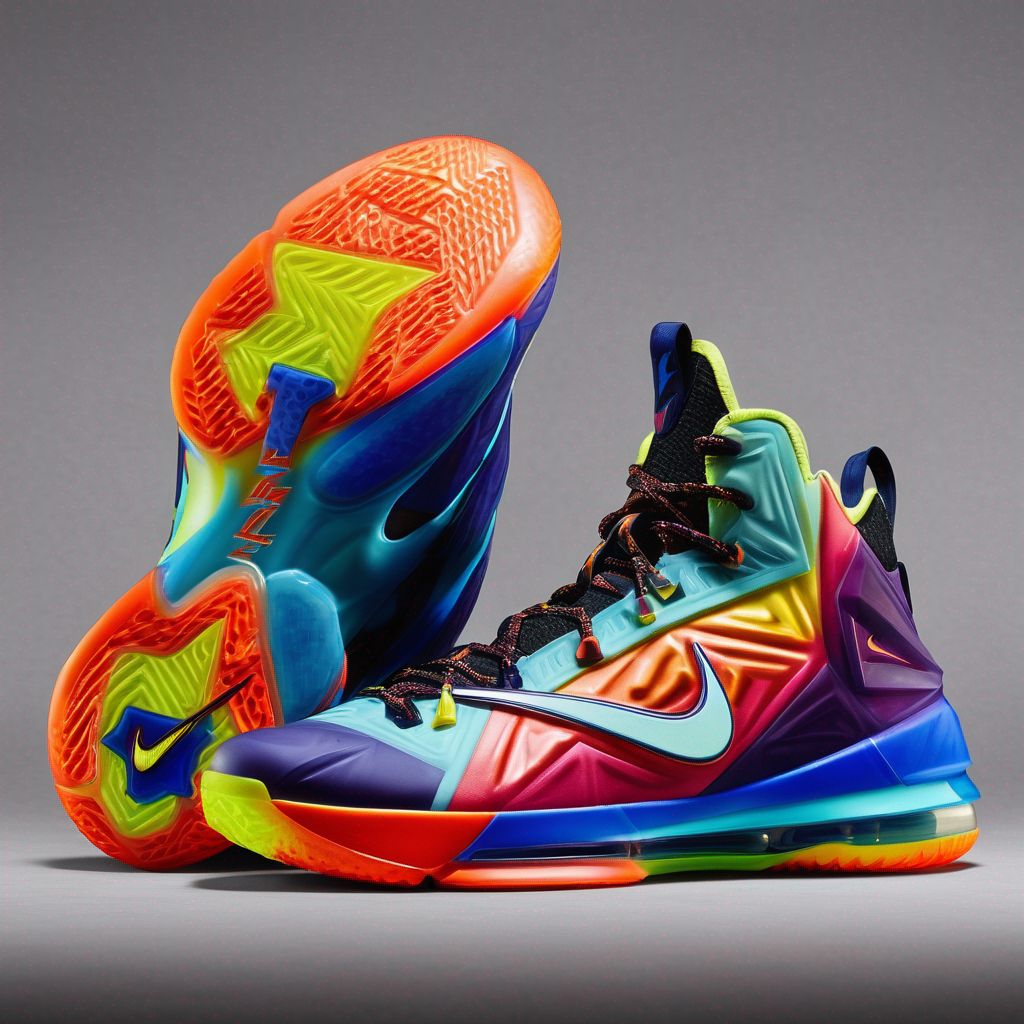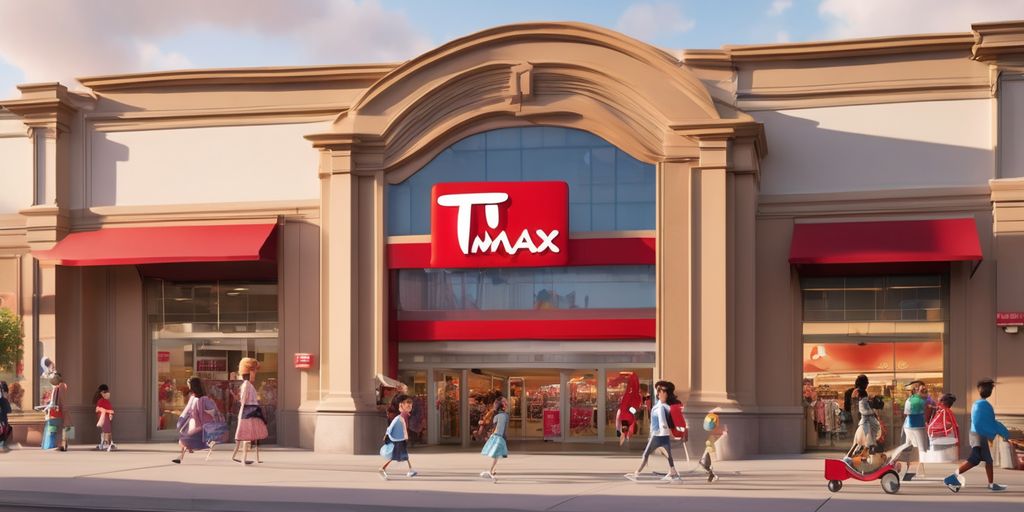The article '21 Insurance Scam Fails USA' delves into various failed insurance scam attempts across different states and sectors in the USA. Highlighting specific cases from Memphis to Southern California, this article offers a comprehensive overview of the cunning yet unsuccessful schemes that aimed to defraud individuals and institutions. Each case study provides insightful details on how these scams were executed and eventually thwarted, shedding light on the ongoing battle against insurance fraud.
Key Takeaways
-
Unveils a range of insurance scams across the USA, from healthcare frauds to auto-related schemes.
-
Highlights specific cities and states as hotspots for particular types of scams, including Memphis and Ohio.
-
Details the tactics used by fraudsters and how they were eventually caught, providing a learning curve for institutions and individuals.
-
Emphasizes the significant financial impacts of these scams, with losses ranging from thousands to millions of dollars.
-
Showcases the efforts of federal and state agencies in combating and preventing insurance fraud, reflecting on the importance of vigilance and legal frameworks.
1. Memphis COVID-19 Scam

In the quirky world of scams, Memphis took the crown in 2020 for the most COVID-19 related trickeries. With a whopping 56 reported scams, this city turned the pandemic into a playground for fraudsters. Imagine, that's nearly three times the scams of New York City, but with only a fraction of the Big Apple's population!
Here's a quick rundown of what these scammers were up to:
-
Fake stimulus checks
-
Bogus unemployment benefits
-
Counterfeit COVID vaccines
-
Phony virus cures
-
Fraudulent charities
Remember, if it sounds too good to be true during a pandemic, it probably is a scam waiting to snatch your wallet!
2. New York COVID-19 Scam

In the Big Apple, where everything is bigger, even the scams have a certain flair! Amidst the chaos of the pandemic, New York City saw its fair share of COVID-19 related frauds. One particularly audacious case involved a fraud investigator from NYC Homeless Services, who was himself accused of COVID fraud. Talk about irony!
Key Facts:
-
Total COVID-19 scams reported: Considerably fewer than Memphis, despite NYC's massive population.
-
Type of scams: Ranged from stimulus check frauds to fake health services.
In a city that never sleeps, scammers took the pandemic as a prime time to play.
While the city hustled and bustled, scammers were busy devising new ways to exploit the crisis, proving that in times of panic, the con artists play their best game.
3. San Antonio COVID-19 Scam

San Antonio, a city known for the Alamo and now, unfortunately, for its COVID-19 scams. In a twist that's more sour than sweet, San Antonio made it to the list of cities with notable coronavirus scams. Scammers in San Antonio were particularly creative, using the pandemic as a backdrop for a variety of fraudulent activities.
-
Stimulus Check Frauds: Promising early access to stimulus checks for a 'small fee'.
-
Fake Vaccine Offers: Selling non-existent COVID-19 vaccines online.
-
Phishing Attacks: Using 'temp email services' to lure victims into providing personal information.
In San Antonio, the blend of old scams with new COVID-19 twists created a cocktail of deception that many unfortunately sipped.
4. Los Angeles COVID-19 Scam

In the city of angels, not all schemes are heavenly! Los Angeles found itself amidst a whirlwind of COVID-19 scams, with fraudsters trying every trick in the book. From fake cures to phony stimulus checks, the creativity of these scammers knew no bounds. Los Angeles was a hotspot for such fraudulent activities, making it a city to watch out for during the pandemic.
-
Types of Scams:
-
Fake COVID-19 cures
-
Phony stimulus checks
-
Fraudulent unemployment benefits
-
Remember, if it sounds too good to be true, it probably is! Stay vigilant and always verify information from trusted sources.
5. Cleveland COVID-19 Scam

In the bustling city of Cleveland, the COVID-19 pandemic brought not just a health crisis but a wave of scams that could almost make you chuckle—if they weren't so darn serious. From fake virus cures to phony charity drives, Clevelanders saw it all. The city ranked as one of the top spots for COVID-19 related scams, with a variety of schemes that would make even the most seasoned scam artist blush.
-
Fake COVID Cures: Imagine buying a magic elixir that promises to ward off the virus. Yep, that happened here.
-
Phony Charities: Who can resist helping out during a pandemic? Scammers used fake charity drives to tug at heartstrings and wallets.
-
Stimulus Check Frauds: Waiting for that government check? So were the scammers, ready to intercept and redirect.
In a twist of irony, the very tools meant to protect us became the tools for trickery in Cleveland. The city's experience serves as a stark reminder of the vigilance needed in times of crisis.
6. Saint Louis COVID-19 Scam

In the charming city of Saint Louis, where the Gateway Arch meets the sky, scammers were busy cooking up a COVID-19 scam that was less Gateway and more Getaway! Amidst the pandemic, these crafty individuals saw an opportunity to capitalize on the chaos. Saint Louis found itself amidst a whirlwind of fraudulent activities, ranging from fake stimulus checks to phony health services claims.
-
Fake Stimulus Checks: Promised quick cash that never arrived.
-
Phony Health Services: Offered non-existent COVID-19 treatments and tests.
In a twist of irony, the scammers in Saint Louis were so busy scamming, they forgot to cover their tracks, leading to a swift crackdown by local authorities.
While the scam was short-lived, it left many locals shaking their heads in disbelief at the audacity of these fraudsters. Remember, if it sounds too good to be true in the midst of a pandemic, it probably is!
7. Columbus COVID-19 Scam

In the bustling city of Columbus, the creativity of scammers during the COVID-19 pandemic reached new heights—or should we say, new lows? Among the various cities caught in the web of COVID-19 scams, Columbus had its fair share of dubious honors. Scammers in Columbus were particularly crafty, employing a range of tactics from fake health services to phony charity drives.
-
Types of Scams:
-
Fake health services
-
Phony charity drives
-
Fraudulent stimulus check offers
-
In Columbus, the blend of traditional scam artistry with a pandemic twist really brought out the creativity in con artists.
According to data, Columbus was not just a minor player in the scam game. It stood out as a significant hotspot for COVID-19 related frauds, making it a city of interest for both scammers and investigators alike.
8. Miami COVID-19 Scam

Welcome to sunny Miami, where the only thing hotter than the beach is the COVID-19 scams! In this tropical paradise, scammers took creativity to new levels during the pandemic. From fake vaccine offers to phony health insurance claims, the scammers in Miami tried it all. The city saw a significant spike in fraudulent activities, making it a notable mention in the hall of shame for COVID-19 scams.
-
Fake Vaccine Offers: Promising early access to vaccines for a fee.
-
Phony Health Insurance Claims: Submitting false claims to insurance companies.
-
Stimulus Check Frauds: Tricking people into handing over personal information.
Remember, if it sounds too good to be true in Miami, it probably involves a scammer with a suntan!
9. Louisville COVID-19 Scam

In the charming city of Louisville, the COVID-19 scam artists were not just horsing around. They took the pandemic as a golden opportunity to gallop away with unsuspecting victims' money. Louisville, known for its spirited Derby, found itself in a less celebratory race against scam artists. These tricksters were as creative as they were relentless, concocting everything from fake vaccine offers to phony charity drives.
-
Fake Vaccine Offers: Promising early access to vaccines for a hefty fee.
-
Phony Charity Drives: Soliciting donations for non-existent COVID relief funds.
In Louisville, the scam rodeo was in full swing, with every trick in the book being used to lasso in some cash.
While the city's residents were trying to keep their health in check, the scammers were checking out their bank accounts. It was a classic case of taking advantage of a crisis to turn a quick buck, or in this case, a quick Derby!
10. Southern California Down Payment Scam

Imagine this: you're all set to move into your dream home in sunny Southern California. You've got your down payment ready, and you're just waiting for the green light from your escrow agent. But then, you get an email that looks exactly like it's from them, instructing you to wire the money. You follow through, only to find out later that it was a scammer! This isn't just a hypothetical scenario; it's a rapidly-growing fraud scheme that has duped many home buyers out of their hard-earned cash.
In one notable case, a couple lost a whopping $160,000 to such a scam. They received wire instructions that seemed legitimate, only to discover the harsh reality days later. The money, sadly, will never be recovered. Here's a quick rundown of how this scam unfolds:
-
Scammers pose as your escrow agent and send you an email with wire instructions.
-
You wire the money, thinking it's going to the right place.
-
The scammers vanish with your money, leaving you high and dry.
Remember, always double-check with your actual escrow agent through a verified contact method before wiring any money. A simple phone call could save you from a financial disaster.
This scam is a stark reminder to be vigilant and verify all communications during the home buying process. Don't let the excitement of a new home blind you to the risks of financial fraud.
11. Ohio Health Care Scam

In the world of health care scams, Ohio takes the cake—or should we say, the prescription? From 2015 to 2020, Ohio was notorious for being a hotspot for health care, Medicare, and Medicaid scams. The Buckeye State was home to the three cities with the highest number of these scams: Vienna, Cleveland, and Columbus. It's almost like they were competing for the 'Scam Capital' title!
One common scam involved providers billing for phantom services or patients playing musical chairs with their identities. Imagine going to the doctor and finding out you've been treated for a condition you never had—surprise! This type of fraud not only hits the wallet but also plays a dangerous game with people's health.
In Ohio, the creativity in health care scams is as diverse as the state itself. From fake billing to identity theft, the methods are as inventive as they are harmful.
-
Top Cities for Health Care Scams in Ohio:
-
Vienna
-
Cleveland
-
Columbus
-
Remember, if it sounds too good to be true, it probably involves a scam in Ohio!
12. Nevada Auto-Related Fraud

Welcome to Nevada, the reigning champion of auto-related fraud in the USA! With an average of 346 reported auto-related fraud cases per 1 million residents, it's no wonder this state takes the cake. From faking mileage to lying about where your car sleeps at night, Nevadans have turned auto fraud into an art form.
Key Facts:
-
Nevada is the worst state for auto-related fraud.
-
Dishonest business practices are often at the heart of these scams, particularly involving auto maintenance shops and dealerships.
Other popular frauds include false reporting of actual vehicle drivers and faking information on annual mileage driven. It's a wild ride of deceit that not only impacts insurers but also leads to nationwide rate increases for auto insurance policyholders.
Remember, what happens in Vegas might just be an insurance scam!
13. Elder Fraud Losses

Elder fraud is no laughing matter, but let's face it, the scammers might as well be cartoon villains with how blatantly they target our beloved seniors. Imagine someone actually trying to scam grandma out of her bingo winnings! In recent years, the average loss per victim was a whopping $34,200. That's a lot of early bird specials!
Here's a quick breakdown of the losses:
-
Federal Trade Commission (2019): Average loss of $34,200 per victim.
-
Consumer Finance Protection Bureau (2019): Estimated annual losses range from $2.9 billion to $36.5 billion.
Remember, the best defense is a good offense. Educate and protect your elders!
It's clear that these scammers have no chill, targeting the most vulnerable with schemes that would make a soap opera writer blush. From Medicare fraud to fake virus cures, the creativity of these crooks knows no bounds. But not to worry, state and federal efforts are on the rise to tackle these dastardly deeds and protect our seniors.
14. Millennial Email Scams

Millennials, the digital natives, are ironically the prime targets for email scams. Despite being tech-savvy, millennials are 77% more likely than other age groups to fall prey to scams initiated via email. It seems that their comfort with technology might just be their Achilles' heel when it comes to cyber fraud.
Here's a quick rundown on the stats:
-
25% more likely to report losing money to fraud than those 40 and over.
-
77% more likely to report email-initiated scam losses.
-
Less likely to report scams initiated via phone calls.
Remember, an email from a prince promising riches is probably not your ticket to wealth. More likely, it's a one-way ticket to Scamville!
Phishing emails, which spoof the sender’s identity to appear more legitimate, are a major threat. These cunning emails often lure recipients into opening malicious links, which can lead to data theft and ransom demands. The best defense? Skepticism and updated anti-phishing software.
15. Auto Maintenance Shop Scams

Ever walked into an auto maintenance shop and walked out feeling like you just attended a magic show? Well, you're not alone! Auto maintenance shop scams are the real deal, and they're not pulling rabbits out of hats—they're pulling cash out of wallets! From phantom windshield replacements to the classic 'bandit' tow tricks, these scams have a toolbox full of tricks to separate you from your money.
-
Windshield Repair Scams: Some shops will convince you that your windshield needs repair or even a full replacement when it's perfectly fine. They might even bill your insurance for work that was never done!
-
Assignment of Benefits (AOB) Scams: Watch out for shops that ask you to sign an AOB form. This little piece of paper gives them the right to bill your insurance directly, often inflating the costs significantly.
-
Towing Scams: If a tow truck shows up uninvited after an accident, be wary. These 'bandit' tow services may insist on taking your car to their shop and then hit you with a hefty bill.
Remember, always verify the necessity of repairs with a trusted second opinion and ensure any tow service is authorized by you or your insurance before they hook up your car.
16. Auto Dealership Scams

Ever wondered why buying a car can sometimes feel like you're in a circus? Well, it's not just the colorful balloons! Auto dealership scams are a real clown show, with a variety of tricks up their sleeves. From rolling back odometers to convincing you that your new car needs an extended warranty that's more useless than a chocolate teapot, these scams can turn your car buying experience into a real juggling act.
Here are some common tactics used in auto dealership scams:
-
Odometer fraud: Rolling back the miles to make the car seem less worn.
-
Title washing: Hiding a car’s damaged history.
-
Unnecessary warranties and add-ons: Selling you extras you don't need.
-
Yo-yo financing: Changing the finance terms after you've driven off the lot.
Remember, if a deal seems too good to be true, it probably is. Always double-check the paperwork and get a second opinion before signing on the dotted line.
17. Vienna Health Care Scam

Welcome to Vienna, where the health care scams are as rich as the pastries! In this charming city, some folks decided to take a bite out of the health care system in a not-so-sweet scam spree. From 2015 to 2020, Vienna topped the charts in Ohio for health care, Medicare, and Medicaid scams. Bold move, Vienna!
Here’s a quick rundown of their favorite tricks:
-
Submitting claims for ghost services: These services are so invisible, they’d make Casper jealous!
-
Upcoding: Charging for a full opera when all you got was a single note.
-
Medical identity theft: Because sometimes sharing isn't caring, especially with your medical ID!
Remember, if it sounds too good to be true in Vienna, it probably involves a scam!
18. Federal Trade Commission COVID-19 Scam

In a world where even viruses can't escape the clutches of scammers, the Federal Trade Commission (FTC) has been on the front lines, battling the COVID-19 scam storm. From stimulus check swindles to fake cures that would make even a snake oil salesman blush, these scams have collectively cost Americans a whopping $588 million.
Key Scam Stats:
-
Total reported losses: $588 million
-
Number of fraud reports: 292,000
-
Highest median loss age group: 80s ($900)
The creativity of these fraudsters could almost be admired—if they weren't so busy pilfering your pockets! Imagine, with all the technological advances at our disposal, criminals still resort to good ol' fashioned trickery, like promising miracle cures that are about as effective as a chocolate teapot.
Remember, if it sounds too good to be true, it probably belongs in a scammer's playbook.
Stay vigilant and keep your wits as sharp as your disinfectant is strong!
19. Federal Trade Commission Elder Fraud

When it comes to elder fraud, the numbers are just as shocking as the methods. According to the Federal Trade Commission, older Americans exploited by fraud in recent years suffered an average loss of $34,200. That's not just pocket change! And if you think that's bad, outside analysts have estimated annual losses ranging from $2.9 billion to a whopping $36.5 billion.
Here's a quick breakdown of the grim stats:
-
Average loss per victim: $34,200
-
Estimated annual losses: $2.9 billion - $36.5 billion
It's clear that elder fraud is not just a minor issue but a major drain on the resources of our senior citizens. State and federal efforts continue to investigate and prosecute these scams, but it's like playing whack-a-mole with a particularly sneaky mole. And remember, while millennials might be the digital natives, they're not the ones facing the heaviest losses here. It's our seniors who are bearing the brunt, making it crucial for everyone to stay vigilant and informed.
20. Federal Trade Commission Millennial Scams

Millennials, buckle up! It turns out you're not just losing your socks in the laundry, but also your money to scams at an alarming rate. According to the Federal Trade Commission, those in their 20s and 30s are 25% more likely to report losing money to fraud than their older counterparts. Email seems to be the scammer's method of choice for this age group, with millennials 77% more likely to fall for scams that start in their inbox than other age groups.
Here's a fun fact: millennials are less likely to report losing money to scams that start with a phone call. Maybe it's because they're too busy not answering calls from unknown numbers? Whatever the reason, it's clear that the digital generation needs a digital defense against these modern money pits.
Remember, if it sounds too good to be true, it probably is. Especially if it's in an email.
21. ClearSurance Auto-Related Fraud

In the world of insurance, auto-related fraud is like the bad sequel to a movie nobody asked for, yet here we are! Insurance scam fails USA style often feature some classic moves. From faking car accidents to exaggerating repair costs, the creativity of fraudsters never ceases to amaze. But, let's dive into the specifics that make ClearSurance's list of auto-related frauds a must-read for every car owner.
-
False Injuries: Claiming injuries that never happened just to squeeze money out of insurance companies.
-
Mileage Misreporting: Oh, did your car magically drive fewer miles than it actually did? Classic!
-
Garage Ghosting: Lying about where the car spends its nights to get cheaper rates.
Remember, while these scams can sometimes be almost comical in their audacity, they have real consequences. They lead to higher premiums for everyone and a general mistrust in the insurance system.
According to a study, auto premium fraud alone accounts for a staggering $35.1 billion in insurance losses annually. That's a lot of zeros! So next time you hear someone bragging about how they outsmarted their insurance company, remember, they're part of the reason we can't have nice things (like affordable insurance rates).
Conclusion
As we wrap up our tour of the 21 most hilarious insurance scam fails across the USA, it's clear that while crime doesn't pay, it certainly does entertain! From misguided attempts to fake car accidents to the overly dramatic falls in public places, these scammers might not have made a fortune, but they sure made us chuckle. Remember, the next time you think about staging a fake injury, the only thing you might end up breaking is your pride—and possibly earning a spot in our next roundup of scam fails!
Frequently Asked Questions
What is the most common type of COVID-19 scam?
The most common types of COVID-19 scams involve fraudulent activities related to stimulus checks, unemployment benefits, COVID vaccines, fake virus cures, and fake charities.
Which city reported the highest number of coronavirus scams in 2020?
Memphis, Tennessee reported the highest number of coronavirus scams in 2020, with 56 reported cases.
What are the typical losses for older Americans exploited by fraud?
Older Americans exploited by fraud in recent years have suffered an average loss of $34,200.
Which state is known for the highest number of auto-related fraud cases?
Nevada is known for the highest number of auto-related fraud cases, with an average of 346 reported cases per 1 million residents.
What are common scams that target millennials?
Millennials are particularly vulnerable to scams that start with an email, and they are 77% more likely than other age groups to report losing money to such scams.
How was the Southern California couple scammed in the down payment fraud?
In the Southern California down payment scam, fraudsters posed as the couple’s escrow agent and duped them into wiring the down payment for their new home to the scammers' bank account, resulting in a loss of $160,000.




